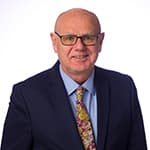Just as a new Standard Operating Procedure arrived for dentists in England, a new and uncharacterised COVID variant was confirmed as present in the UK. In place of universal precautions, the new model places patients on two pathways - based on the likelihood of them carrying respiratory infection.
We have long pressed for a roadmap to safely ease COVID restrictions in dentistry. Yet the timing of this move, relaxing many key measures in practice just as Government moves to tighten others in wider society, has left some members struggling with the mixed messages.
Last night the office of the Chief Dental Officer for England held a webinar to address this and discuss the impact of the new SOP. In anticipation we reached out to members and asked for your questions to put directly to the CDO. You responded with queries in the hundreds regarding safety and practical issues in the days ahead. While there are many clear responses, on the whole there is a disappointing level of unanswered questions. The most obvious elephants in the room being Omicron and NHS targets. Here's what you need to know.
Safety first?
The issue at the core of the questions from many members understandably revolved around the safety of teams and patients.
In other words, when it comes to PPE, the ball is in your court...
In terms of maintaining existing safeguards, the CDO was at pains to stress that colleagues have flexibility. The IPC guidance sets the bare minimum requirements. The SOP offers what has been described as a 'handrail' for putting them into practice. In other words, when it comes to PPE, the ball is in your court and some concerns may well be allayed.
However, in email after email there were questions about asymptomatic patients - who will not be identified by screening. And answers here are in short supply.
We don't yet have certainty about the symptoms for Omicron, or any idea what proportion of infections are asymptomatic. So, many questioned whether it's even appropriate to relax precautions, particularly for AGPs.
Advance triage also loomed large in messages from members and here the CDO was open that there will be practical challenges. Practices will have to make proactive contacts in the 24 hours ahead of appointments, to pose the questions that will define whether patients end up on the respiratory or non-respiratory pathway.
There may be a range of options to choose - from email to SMS and phone calls - but clearly this will place burdens on practices already under huge pressure.
Similarly, we heard about suggestions to book in vulnerable patients first thing and keep a block of appointments for respiratory patients at the end of the day. This is a nice idea on paper but one that - in the face of short notice changes in respiratory status and cancellations - is unlikely to hold together in the real world.
Practical problems require practical solutions
Practical concerns dominated the vast majority of your questions. You wanted to know how you should work in the days ahead.
And this is where sound principles hit hard realities.
If dentists need FFP3 masks or fluid repellent gowns, then they will require guaranteed supplies. For this there will be ongoing costs, especially for those providing private dentistry. Even basics like the twice-weekly Lateral Flow Tests required for team members are now a real challenge for larger practices, with no means of ordering in sufficient volumes. We are raising these matters directly with NHS England.
Will air filtration suffice in this brave new world? The simple answer is no.
Will air filtration suffice in this brave new world? The simple answer is no. The OCDO was clear that AGPs will require surgeries to have natural or mechanical ventilation. Those without were told to seek 'specialist advice'.
While that's clear enough, it only reinforces the need for capital funding across dentistry. England remains the only UK nation yet to offer any support.
Officials stressed the need for effective signage to help patients clearly understand the screening process. That's a sensible message and one where templates would help thousands of practices avoid having to dabble in graphic design.
A message to ministers
Flexibility is a nice idea, but for those working in NHS dentistry the reality is you can't do what you feel is appropriate when you're chasing an imposed target.
The CDO was open at the outset that she could not address contractual issues, beyond stating the fact that nothing will change for quarter three.
We are pressing ahead and picking this up directly with new minister Maria Caulfield MP and NHS England.
With quarter four less than two months away, members were clear to us they need to see an end to 11th-hour announcements. We simply do not know what capacity this change will unlock, but as we head into winter with respiratory diseases already set to surge there are clear limits.
The CDO stressed no two practices are the same, but we know all are facing the same crude targets.
We want to see members have the freedom to choose to do the right thing for their patients, their teams and themselves.
This new SOP does not mark a return to 'business as usual', and dentists will need practical support and clarity to deliver on it.

